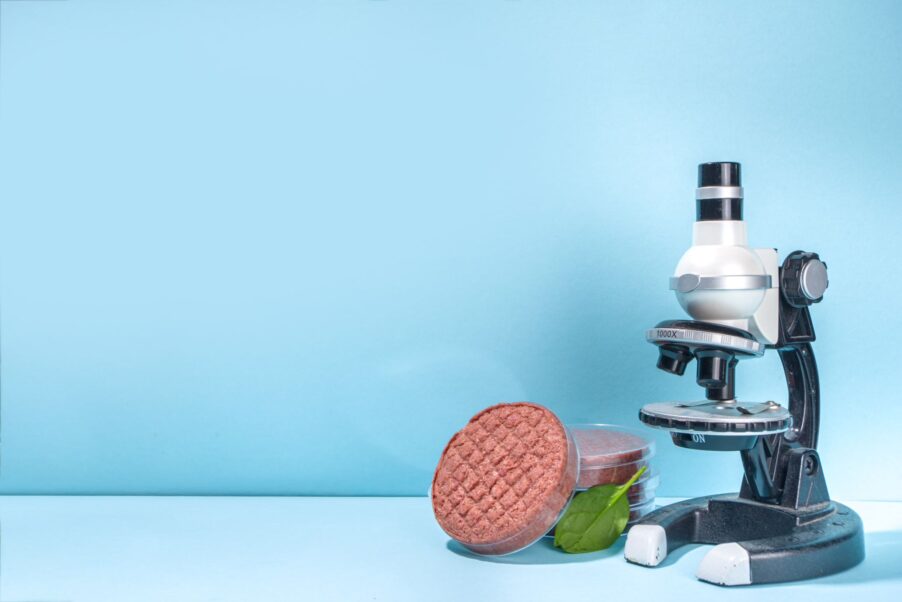Mycoprotein for the Environment
Greener patties could help save the planet—maybe.

Using the assumption that the world’s appetite for meat is not going to wane, substituting 20% of the burgers and steaks we eat from cattle with microbial protein (mycoprotein)—a meat alternative produced in fermentation tanks with a similar taste and texture as beef—by 2050 could halve deforestation and significantly cut greenhouse gas emissions from agriculture and land-use change, according to an analysis in Nature.
For the same amount of protein, microbial protein (mycoprotein) requires much less agricultural land and produces a fraction of the methane compared to ruminant meat.
Investigators from Germany and Sweden included microbial protein in a computer-simulation model to suss out the environmental effects in the context of the whole food and agriculture system. They took into account future population growth, food demand and dietary patterns.
The researchers point out, however, that a significant transformation to carbon-free electricity generation will be required so that the climate protection potential of mycroprotein can be fully realized.
See also: Word of the Day: Mycoprotein
Matthew Kadey, MS, RD
Matthew Kadey, MS, RD, is a James Beard Award–winning food journalist, dietitian and author of the cookbook Rocket Fuel: Power-Packed Food for Sport + Adventure (VeloPress 2016). He has written for dozens of magazines, including Runner’s World, Men’s Health, Shape, Men’s Fitness and Muscle and Fitness.





